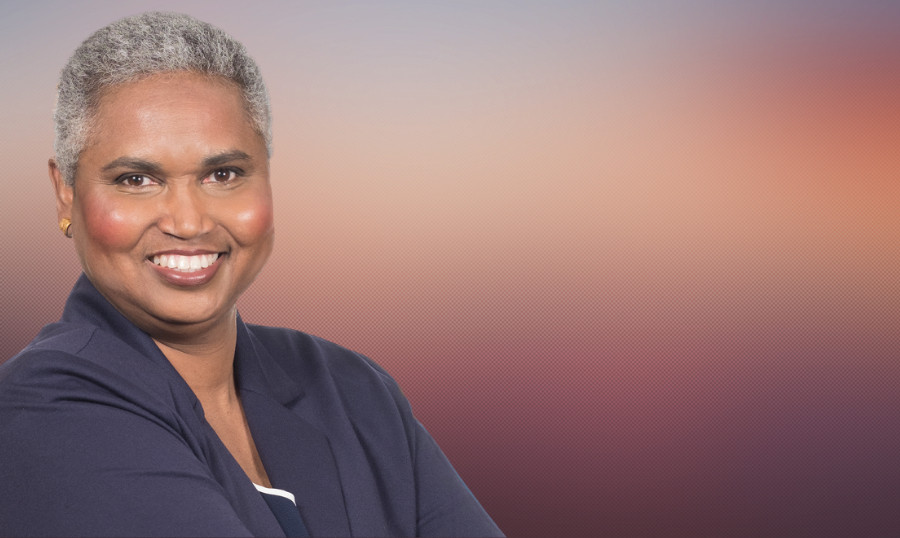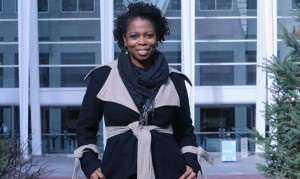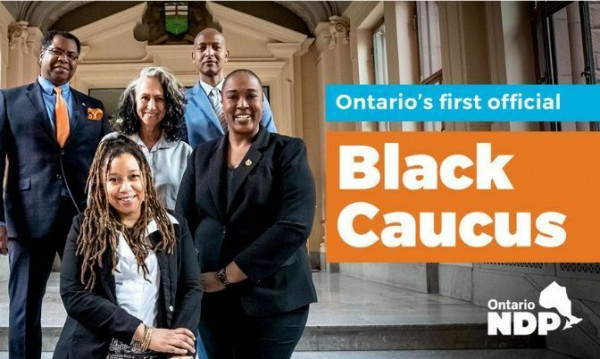One thing for sure is the need for representation. It's no secret that Black communities face adversity. Knight, who has a very European name, says she often felt disappointed when potential employers invited her to job interviews—only to realize she is Black, “I’ve watched doors close,” she admits, “I’d go to interviews where people were more than willing to pick my brain and ask me things, but they wouldn’t hire me.” Sound familiar?
Knight knows that representation is the key. She grew up among Black women who were well-respected leaders doing great things for their communities. For 20 years her mother was the general manager of the Urban Development Co-operation in Jamaica which meant she had a lot to do with the accessibility of low-income housing. Knight recalls escorting her mother on work trips to look at the accommodations at a young age. Her mother was also a member of UN-Habitat. So, it’s no surprise that Knight became such an avid advocate for issues relating to homelessness in Cambridge, where she has lived for most of her life.
Driven by conversations they shared at the dinner table, Knight says, "My mother was big on education, housing, and mentoring of women. Especially Black women. I can talk all day about my mother; she was an amazing, amazing, accomplished woman."
Knight says Black women are the epicentre of intersectionality, so they need to assume positions of power to inspire the younger generation. In addition, the representation and perspectives of Black women are critical, especially when policies regarding systemic issues are being decided. As someone once told her, “If we’re not at the table, we’re on the menu."
Another reason she decided to run again is the growing rates of homelessness, specifically in the Cambridge region. Homelessness is a major crisis that affects many people within Ontario. Last year alone, 1,085 people were accounted for as homeless in the Waterloo Region and those numbers have only been increasing every year.
Inspired by her mother, Knight worked with $15 & Fairness while pursuing a Bachelor of Social Work at the University of Waterloo. $15 & Fairness is a pressure group focused on improving provincial labour laws. A member of the organization came to her class to speak. She remembers being struck by the conversation regarding minimum wage, paid sick days, temp agencies, and misclassification of people. At the time, Knight was working a minimum wage job doing retail and struggling to make ends meet.
The then government held consultations about the employment standards act and invited Knight to participate. Knight was the only person in the room who had faced and could relate to the issues discussed, which confused and ignited her. She was later invited to speak at a poverty symposium, and it was there she met Deena Ladd, the executive director of The Workers' Action Centre.
"We met and talked, and she said, 'you know, you're going to have to work with me,' and it was there that she was trained and began her advocacy work."
Affordable housing is a cause so close to her heart because she has experienced homelessness after losing her job and having her house reclaimed by the bank. At the time, she had her children stay with friends. She also had to give up many of her possessions, including her pets. During this time, she stayed at The Bridges, an emergency shelter, for a little over a month before finding other accommodation through the kindness of friends and church members. “It was the lowest point I’ve ever been at,” Knight says.
The current administration believes the solution to homelessness is the availability of jobs. But Knight explains that the minimum wage is not enough to sustain a home. “People need the means to live. You go back to the 1950s, where one person was working; they had a house, a car, the kids went to school, and it worked. Now, two parents are working, kids are contributing, and you still can’t get anywhere. It’s not right,” she explains, “this is not what our society needs.”
“I felt like a failure,” she says. Her predicament at the time came as a shock. But considering her background and upbringing, she felt these issues were far from her. This shows that anyone can end up homeless, which is the case for many people. She tells a story of an impeccably dressed older woman she once saw at a food bank. She approached her because she looked misplaced and thought maybe she was lost. Turns out she was a stay-at-home mother whose husband of 30 plus years decided he was done with the marriage, sold their assets, and took off to continue his life elsewhere, leaving her with nothing.
Knight has many other stories of similar fate at her fingertips, “It’s my life, it’s what I do,” she says. For example, low-income earning women and single mothers are a significant demographic of the homeless population. Another growing demographic is seniors due to their fixed incomes. Knight speaks again of an 84-year-old woman who worked for almost 30 years and is currently on a pension so minuscule she qualifies for Old Age Security (OAS) yet, both incomes combined couldn’t afford her rent.
“She’s dependent on the kindness of strangers and the food bank. And she does not take the medication she needs because she has no money. Now what?” This story has a decent ending because with the help of someone from ‘housing,’ Knight was able to get this woman accommodation at a seniors' apartment at a subsidized rate. Many are not as fortunate as this 84-year-old because another senior needs affordable housing. Still, Knight could only find one in Woodstock which is hours away from Cambridge with public transportation as the person’s family living on minimum wage, does not own a car. Knight has numerous stories like these of people in distress over providing for their families and having a safe space to rest their heads at night.
“If you end up on the street, even if you did not have a mental health issue, you stay there long enough, you're going to develop an issue because the stress alone is huge. The violence on the street at night.”
The life of a homeless person is extremely precarious as they must consider many factors to survive. The stigma is very real: “You’re travelling with your things (or ‘with your bag and pan’ as her mother would have described it), and that instantly identifies you,” she says. She recalls her time at The Bridges; keeping her belongings by her bed while she went to work or about her day was not an option, fearing they might not be there when she returned. “If I decided to go to the mall, walk around, have an ice cream cone, and take a seat, no one would trouble me. But then, with my bag and pan, I walk into the mall to sit down, and security would tell me to move along. When people realize you are homeless, they treat you very differently.”
Marjorie has the experience, and she helps people in need daily. Yet she hasn’t seen adequate solutions put in place, “I’m not saying I have all the solutions either, but there has to be a conversation and actions taken on these conversations. We need to deal with poverty issues.” She believes most people would rather be able to earn their own money to look after themselves instead of depending on the government but surviving off minimum wage makes this close to impossible. “I feel very strongly that these things need to change. I feel very, very strongly that we have a responsibility to make the change. And I have a personal responsibility."
This story is part of our 10-part series, "Black History Month Changemakers."

 By
By 






